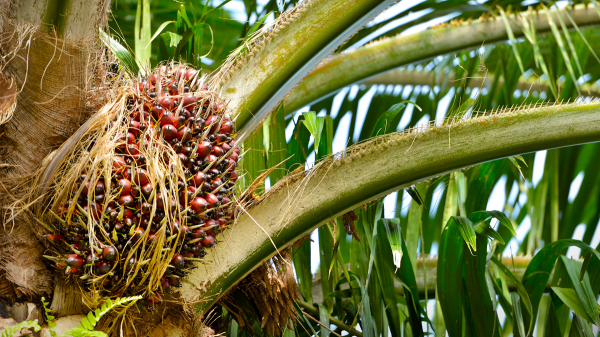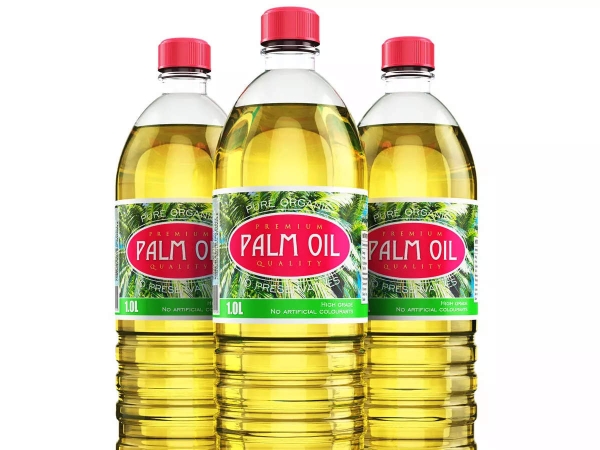Indonesia has lifted its export prohibition on crude palm oil
Traders were surprised by Jokowi's announcement that Indonesia, the world's largest palm oil producer, would stop exporting cooking oil to ensure the availabili
- by B2B Desk 2022-04-26 10:18:35
Indonesia's Agriculture Ministry on Monday said shipments of crude palm oil would be exempt from a proposed palm oil export ban, according to a copy of an official letter sent to local government leaders.
The letter, which was reviewed by a ministry official, said the ban would include refined, bleached and deodorized (RBD) palm olein. It was still unclear on Monday whether products such as RBD palm oil and palm stearin were affected. Indonesian President Joko Widodo announced the ban on Friday evening. It comes into force on April 28th. Jokowi, as the president is known, said on Friday that the export of cooking oil and its raw material would be banned, but gave no details.

Traders were surprised by Jokowi's announcement that Indonesia, the world's largest palm oil producer, would stop exporting cooking oil to ensure the availability of domestic food products. Although an exemption of crude palm oil from export restrictions is positive for world markets, the bulk of Indonesia's palm oil exports are in the form of processed oils, which remain affected by the ban. World cooking oil stocks have already been stifled by adverse weather conditions and Russia's invasion of Ukraine's top grain producer, and global consumers now have no choice but to pay a heavy price for supplies while global food inflation is at an all-time high. Benchmark Malaysian crude futures fell 2.09% after it was revealed the ban only affected RBD olein, after it rose nearly 7% to its highest level in six weeks.
"Massive short-covering died out after it was revealed that the ban only affected bulk and packaged olein from Indonesia," said Paramalingam Supramaniam, director of Selangor-based brokerage firm Pelindung Bestari. He said there were still fears that crude palm oil would be put on the ban list as the raw material for RBD palm olein.

According to Refinitiv Eikon, Indonesia exported an average of around 620,000 tons of RBD per month in 2021, compared to an average of around 100,000 tons of crude palm oil. The main destinations were India, Pakistan and Spain. The government's move to curb stubbornly high cooking oil prices caused shares of its largest palm oil companies to fall on Monday, while the rupee-led Asian currency fell. Dollar-denominated bonds issued by the Indonesian government fell more than 1 cent to their lowest since the spring 2020 COVID market crash. According to the Indonesia Palm Oil Association (GAPKI), processed palm oil exports amounted to 25.7 million tons in 2021, or 75% of total palm product exports. CPO exports in 2021 were 2.74 million tons or 7.98% of shipments. In January and February of this year, processed CPO exports accounted for 3.38 million tons, or 79% of exports, while CPO exports accounted for 90,000 tons, or 2% of the total shipped. World prices for crude palm oil, which Indonesia uses for cooking, have reached record highs this year.
Also Read: Since 2013-14, non-basmati rice exports have increased by 109 percent
POPULAR POSTS
Loan EMIs to Drop as RBI Slashes Repo Rate - Full MPC December 2025 Highlights
by Shan, 2025-12-05 11:49:44
Zoho Mail vs Gmail (2025): Which Email Platform Is Best for Businesses, Startups, and Students?
by Shan, 2025-10-09 12:17:26
PM Modi Launches GST Bachat Utsav: Lower Taxes, More Savings for Every Indian Household
by Shan, 2025-09-24 12:20:59
$100K H-1B Visa Fee Explained: Trump’s New Rule, Clarifications & Impact on Indian Tech Workers
by Shan, 2025-09-22 10:11:03
India-US Trade Deal Soon? Chief US Negotiator Arrives in Delhi as Talks Set to Begin Tomorrow
by Shan, 2025-09-15 11:54:28
Modi Meets Xi: Trump’s Tariffs, Strategic Autonomy, and the Future of Asia’s Power Balance
by Shan, 2025-09-03 06:40:06
Google Claims Gemini AI Uses Just ‘Five Drops of Water’ Per Prompt, Sparks Debate
by Shan, 2025-08-22 12:34:27
RECENTLY PUBLISHED

Pine Labs IPO 2025: Listing Date, Grey Market Premium, and Expert Outlook
- by Shan, 2025-11-05 09:57:07

The Agentic Revolution: Why Salesforce Is Betting Its Future on AI Agents
- by Shan, 2025-11-05 10:29:23

Top 10 Insurance Companies in India 2026: Life, Health, and General Insurance Leaders Explained
- by Shan, 2025-10-30 10:06:42

OpenAI Offers ChatGPT Go Free in India: What’s Behind This Big AI Giveaway?
- by Shan, 2025-10-28 12:19:11

Best Silver Investment Platforms for 2025: From CFDs to Digital Vaults Explained
- by Shan, 2025-10-23 12:22:46





 Subscribe now
Subscribe now 